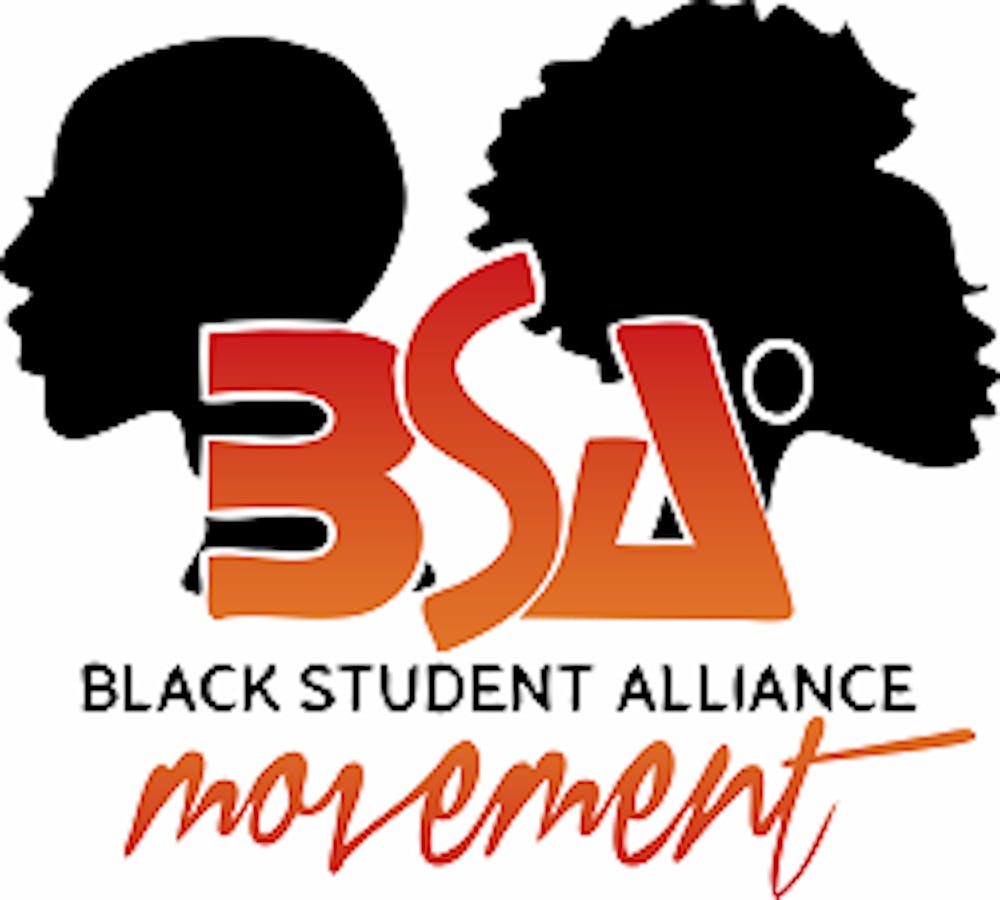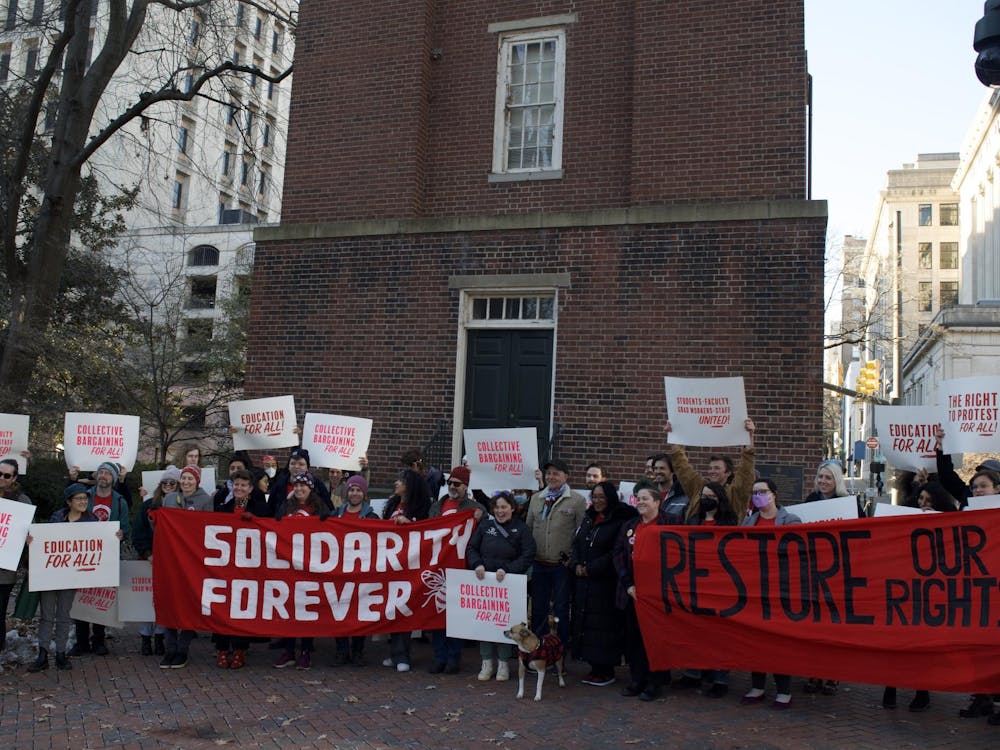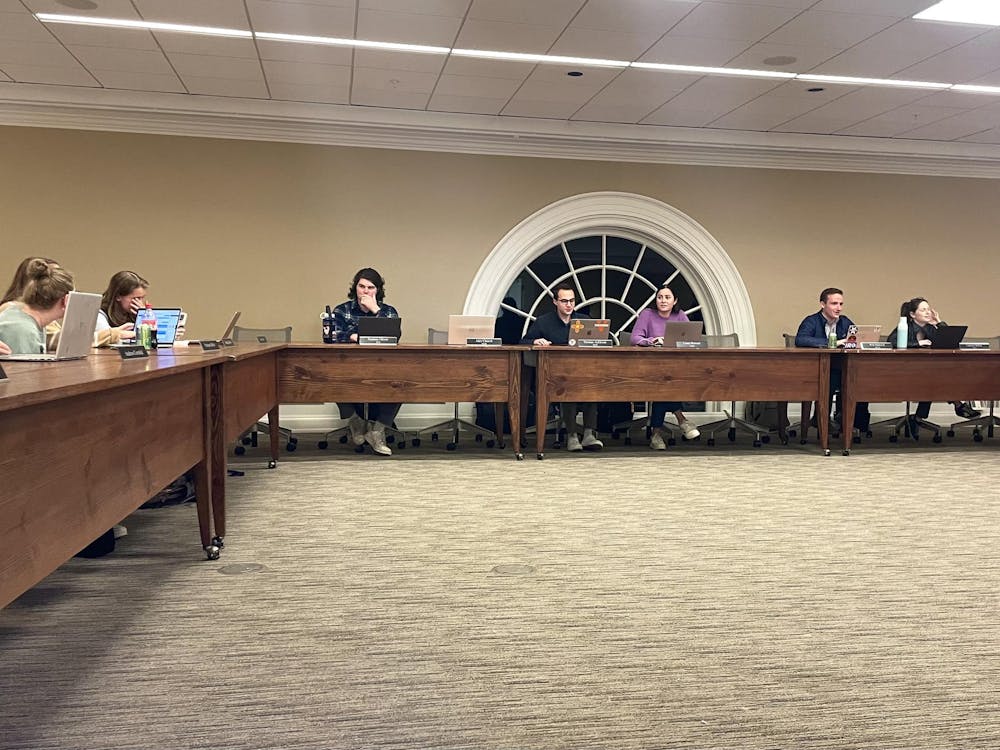The Black Student Alliance released a proposal titled “Towards a Better University” Friday evening, detailing concerns and recommendations to improve the lives of black students, faculty and workers at the University.
The proposal is 27 pages in length and lists 30 supporting black student organizations, including the University chapter of the NAACP, the Black Male Initiative and the Minority Rights Coalition, among others. It is broken into four key sections — regarding a culture of truth, the elimination of abuses, the proper allocation of resources and increasing black presence at the University.
Incoming BSA President Aryn Frazier, a second-year College student, said BSA began working on the proposal a few days after the bloody arrest of Martese Johnson on the Corner on Mar. 18.
“We all knew that there needed to be concrete recommendations regarding the abuse that was inflicted on Martese directly, but also the indirect causes like culture that the University very much so reinforces,” Frazier said in an email. “The ideas that are included are a synthesization of the myriad concerns that came out of meetings in the wake of that attack, as well as the result of quite a bit of research done by many concerned students.”
By way of introduction the proposal states that the University must first acknowledge its “horrific history in regards to its treatment of Black people,” and its failure to address these issues over several decades, and take on a leadership role by enacting tangible changes.
“The University of Virginia must take a lead on issues of diversity, inclusion, and racial equity in order to position itself as a model institution of higher learning,” the proposal reads. “In order to achieve this goal, tangible changes must be implemented. We urge the administration to commit and align with these action items and steps towards transformational change.”
Following the introduction, the proposal calls for the creation of a “Culture of Truth that permeates every corner of the University of Virginia, the City of Charlottesville, and the greater nation.”
Outgoing BSA President Joy Omenyi, a fourth-year College student, said without this culture of truth and honesty, it will be hard to move forward with tangible results.
“If we don’t operate from a standpoint of honesty and truth we might as well not be doing this at all,” Omenyi said.
To further the culture of truth, BSA offers 10 tangible policy recommendations. Among others, these include the implementation of an online “cultural competency training module” mandatory for all students, a required period for public comment at Board of Visitors meetings, an in-depth study on the condition of black people at the University, similar to “An Audacious Faith,” released in 1987, and greater awareness in the general student body, partly through the inclusion of more minority voices in coursework.
“That culture of truth needs to permeate inside and outside of the classroom,” Omenyi said. “If we’re not being truthful with ourselves we will only continue in that downward spiral.”
The proposal also calls for an “Elimination of Abuses,” including both physical abuse and forms of economic and psychological abuses in the Charlottesville area. The University is a major employer in the Charlottesville area but does not pay a living wage, which the proposal cites as an economic abuse.
In order to combat economic abuse, the proposal includes other requests, including an internal and external review as well as an “intentional study on the cost and effect of institutionalizing a living minimum wage” for all direct employees of the University, supplemental skill training for employees during summer months and an effort from President Teresa Sullivan to move toward the “revamping of the Staff Union and take steps towards improving the Staff Senate.”
“The biggest part of that is respecting the people who do all this work for us — respecting the people whose home we come into for four years and leave,” Omenyi said. “It’s an abusive relationship between the University and the Charlottesville community.”
The proposal also calls on Governor Terry McAuliffe and the State Legislature to abolish the law enforcement mandate of the ABC, citing other states such as Pennsylvania, Delaware and Idaho, which have already taken steps to transfer alcohol control enforcement to existing departments and agencies.
Additionally, the proposal calls for “additional, thorough implicit biases and discrimination training” for the University, Charlottesville and Albemarle police departments and well as an introduction of stricter regulations regarding situations in which a police officer can make physical contact with a citizen.
BSA defines the proper allocation of resources as including, but not limited to, monetary funding and space allocation. It outlines the necessity of the University to create spaces in which minority students can “be seen as permanent and important fixtures.”
The proposal calls on the Board of Visitors to allocate resources for expansion and renovation of the Luther P. Jackson Center and the Office of African American Affairs, which currently exists at what was originally deemed a temporary location almost 40 years ago, and increased financial support for organizations and programs which benefit minority students academically, socially and psychologically. BSA also calls on Sullivan and her cabinet for support of these measures.
The proposal also outlines efforts to increase black presence of students, faculty and staff on Grounds at the University, citing a steady decline in percentage of black students, with a number of 6.1 percent of the student body as of fall 2014.
Under the increase of black presence on Grounds, the proposal lists goals including a concordant percentage of black students with the percentage of black Virginia residents, a focus on increasing enrollment from areas of Virginia with low numbers of applicants and matriculations and a re-evaluation of recruitment strategies in the attempt to attract black student talent.
BSA also highlights financial burden and sticker price for the University as possible deterrents for attendance of minority students and calls for increased financial support for minority students, both current and incoming, and said hiring more black professors with relevant backgrounds across various departments “will ensure that, regardless of major, students are receiving a well-rounded education that includes various perspectives.”
“It’s not only recruiting but retaining,” Omenyi said. “If you’re recruiting all this black faculty, but they’re leaving after two years, what does that mean?”
Omenyi said a number of people in the Masters of Public Policy program in the Batten School expressed an interest in working with the organization regarding policy and logistics.
“We sat down with them to provide a foundation of what we were working with, they came back to us with what they had — which was a lot of research and synthesizing, then we came back and worked and expanded on it a bit more and added necessary particulars,” Omenyi said in an email.
Frazier said BSA hopes for everything outlined in their proposal to take place.
“Everything outlined in that document is doable; the only question is whether those in power have the will to truly change the University for the better,” Frazier said.
Frazier said if these proposals are carried out, the University can be a leader for other institutions of higher education, which she said exhibit the same issues of diversity and inclusion.
“The University cannot simply look to its peers in regards to improving its racial track record: these issues of diversity and inclusion exist across higher education,” Frazier said. “If U.Va. does this, then it will be a leader in higher academia that its peer institutions should model, and U.Va. will be much better equipped to attract more top students and top faculty.”






